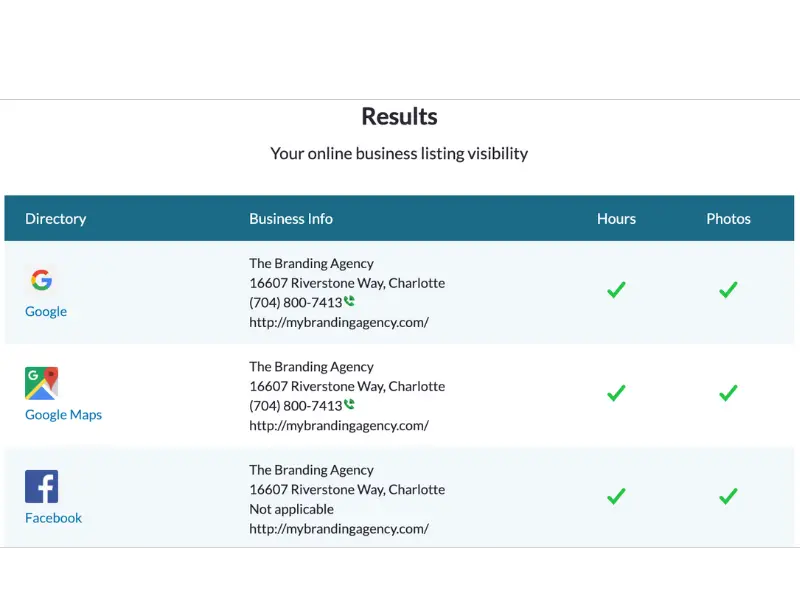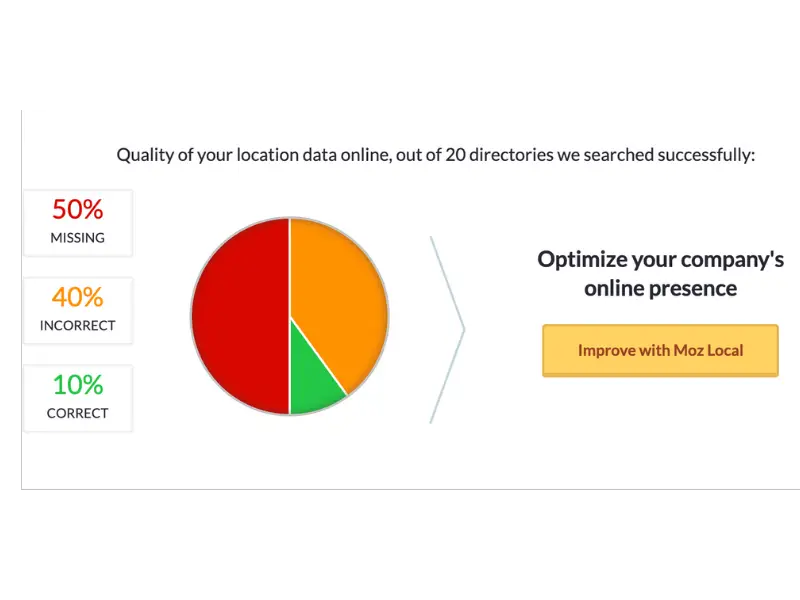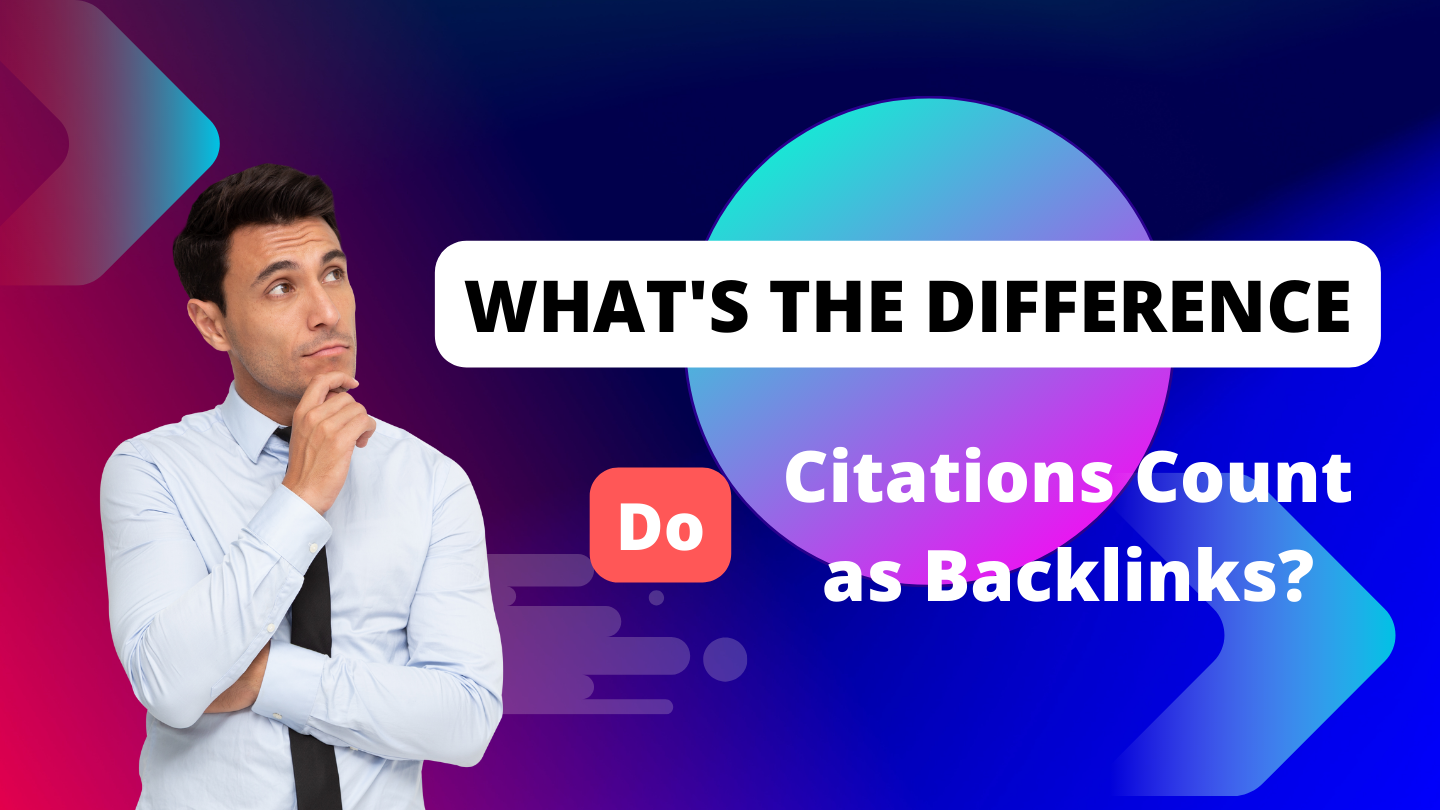The Definition of a Citation VS a Backlink: The Count for SEO
When understanding the role and importance of citations, it’s essential to grasp the difference between various terms such as links, backlinks, and citations. While they are related, they each have distinct characteristics and functions. Let’s explore these concepts in more detail:
Links:
Links are elements on a webpage that direct users to another webpage when clicked. They are crucial for website navigation and connect different pages within a website or link to external sources. Links can be internal (pointing to other pages within the same website) or external (pointing to other websites).
Backlinks:
Backlinks, or inbound links, originate from external websites and point to your website. They are essential for search engine optimization (SEO), as search engines consider backlinks indicators of a website’s credibility and authority. Backlinks can improve a website’s ranking in search engine results pages (SERPs) and drive more organic traffic.
Citations:
In the context of SEO, Citations mention your business’s name, address, and phone number (NAP) on other web pages, even if they don’t link back to your site. Citations are significant for local businesses as they help establish the credibility and existence of the business in a specific geographic location. While citations don’t always include links, they play a crucial role in local SEO and can improve a website’s visibility in local search results.
Understanding the relationship between citations and backlinks is essential. While not all citations count as backlinks, some citations can act as backlinks, providing a direct link to your website. However, the impact of citations on SEO may vary depending on the specific context and search engine algorithms.
When building citations for your website, it’s essential to consider their quality and relevance. Listing your business in authoritative directories, industry-specific websites, and local directories can enhance your website’s visibility and credibility. Popular citation sources include Google My Business (which integrates with Google Maps), online directories, industry associations, and review websites.
In addition to citations, incorporating other elements into your SEO strategy can further boost your website’s visibility and authority. These elements include anchor text optimization, where you optimize the clickable text of a link, using tools like Majestic or Moz for backlink analysis and building, and creating valuable content that encourages brand mentions and social media sharing.
Furthermore, internal and external links within your website can also contribute to your SEO efforts. Internal links connect different pages on your website, allowing users to navigate quickly and search engines to understand the structure of your website. External links, on the other hand, point from your website to external sources, providing additional resources and signaling to search engines that you have valuable content.
To ensure a comprehensive SEO strategy, one should focus on other aspects such as on-page optimization, user experience, social media engagement, and using relevant keywords. Combining these strategies can enhance your website’s authority, visibility, and organic search rankings.
Remember, SEO is an ongoing process that requires continuous monitoring, analysis, and adaptation to keep up with the ever-changing algorithms of search engines like Google
What’s the Difference: Do Citations Count as Backlinks in Google Ads?

When understanding the relationship between citations and backlinks in the context of Google Ads, it’s essential to delve into the differences and similarities between these terms. Let’s explore what sets them apart and how they can impact your website’s visibility and search engine optimization (SEO) efforts.
Backlinks, or inbound or incoming links, are hyperlinks on other websites that direct users to your site. These links serve as endorsements or recommendations from other web pages, indicating to search engines that your content is valuable and trustworthy. In SEO, backlinks are highly regarded because they can improve your website’s authority, search rankings, and organic traffic.
On the other hand, citations are references to your business’s name, address, and phone number (NAP) on other online platforms, such as directories, listings, or social media profiles. While citations don’t necessarily include hyperlinks to your website, they play a crucial role in local SEO and can boost your visibility in local search results. Google values consistent and accurate NAP information across the web, as it helps validate your business’s legitimacy and location.
So, do citations count as backlinks in Google Ads? The answer is both yes and no. While citations are not technically backlinks in the traditional sense, they can still impact your website’s SEO and online presence. Let’s explore how:
1. Authority and Trust: Some citations can undoubtedly act as backlinks like backlinks. When specific directories or platforms link back to your website, they contribute to your site’s authority and trustworthiness in the eyes of search engines.
2. Local SEO Benefits: Citations are vital for businesses targeting a specific local area. Google Maps, for example, heavily relies on accurate NAP information to display relevant local search results. Consistent citations across various platforms can enhance your business’s visibility in local searches.
3. Brand Mentions: Even if citations don’t include direct links, they can still mention your brand name, which is valuable for building brand awareness and recognition. Brand mentions contributing to establishing your business as a reputable entity in your industry.
4. Indirect SEO Effects: Citations indirectly influence SEO by providing additional signals to search engines about your business’s relevance and popularity. While they may not directly impact search rankings, they can contribute to a comprehensive SEO strategy alongside other factors like anchor text, internal and external links, and overall website quality.
Implementing a comprehensive local SEO and link-building strategy is essential to make the most of citations and backlinks in your Google Ads campaigns. Use reputable citation-building services or tools like Majestic or Moz to find relevant directories and platforms for your business category. Conduct thorough analytics and keyword research to identify citation sources that bring maximum visibility and traffic.
Remember that while citations count as backlinks for your site in some cases, they shouldn’t be solely relied upon for your SEO efforts. A well-rounded digital marketing strategy, including citation building, link building, social media engagement, and PPC management, will yield better results for your online presence.
✳️ Citations and backlinks may have different technical definitions, but they significantly enhance your website’s visibility and authority. Understanding their nuances and utilizing them strategically within your Google Ads campaigns can positively impact your overall marketing efforts and improve your online reach.
Read about: What does it mean when a website is monetized?
The Value of Internal and External Links in Developing Quality Backlinks
This section will explore the difference between internal and external links and their significance in building quality backlinks for your website. Understanding the role of links, citations, and backlinks is crucial for effective SEO and improving your website’s visibility on search engines like Google. Let’s dive in and explore the various aspects related to these critical elements.
1. What’s the difference between internal and external links?
Internal links are hyperlinks that connect different pages within your website. They are valuable for guiding users through your content and helping search engine crawlers discover and index your web pages effectively. Internal links enhance the user experience by providing additional relevant information and promoting website navigation.
On the other hand, external links, also known as outbound links, are hyperlinks that point to other websites. These links are essential for establishing connections with other web resources, providing additional context, and enhancing the credibility of your content. External links can also benefit SEO, as they contribute to your website’s authority and relevance in search engines’ eyes.
2. How do citations count as backlinks for your site?
Business information on other websites commonly includes:
- Your business name.
- Address.
- Phone number (often referred to as NAP).
- Sometimes additional details like website URL or business hours.
You can find citations in online directories, business listings, social media profiles, and other platforms.
While citations are more complicated to comprehend than traditional backlinks, they can sometimes act as backlinks. Search engines like Google take citations into account when evaluating a website’s authority and relevance. Therefore, having consistent and accurate citations across different platforms can positively impact your website’s visibility and organic rankings.
3. The role of internal and external links in SEO
Internal links play a significant role in SEO by establishing an information hierarchy, spreading link equity (ranking power) throughout your website, and enabling search engines to understand the relationships between various pages. Effective internal linking helps search engines discover and crawl your content more efficiently, improving indexation and visibility.
External links, on the other hand, contribute to off-page SEO factors and are essential for building backlinks to your site. Backlinks from reputable and authoritative websites indicate to search engines that your content is valuable and worth referencing. Quality external links can improve your website’s authority, increase organic traffic, and enhance your overall search engine rankings.
4. Leveraging anchor text, brand mentions, and case studies
When utilizing external links, it’s essential to consider the anchor text—the visible, clickable text within a hyperlink. Anchor text should be descriptive and relevant to the content it is linking to. Using optimized anchor text can help search engines understand the context and relevance of the linked page, thus boosting its visibility for specific keywords.
Brand mentions, which are references to your business or brand without an actual hyperlink, also contribute to your website’s online presence. Even without a clickable link, brand mentions help establish your brand’s authority and visibility, especially when mentioned in reputable publications or industry-related websites.
Additionally, incorporating case studies in your content can be a powerful way to attract external links. Conducting and publishing case studies highlighting your expertise, success stories, or unique approaches can make your content more link-worthy, as other websites may reference your case studies as supporting evidence or valuable resources.
5. The importance of directory citations and local SEO
Directory citations are crucial in local SEO for businesses in specific locations. These citations often appear in online directories and listings that target local customers. Ensuring consistent and accurate NAP information across different directories helps search engines associate your business with specific locations, increasing your chances of appearing in local search results.
Directory citations can be valuable backlinks, especially from authoritative or industry-specific platforms. These citations provide a reference to your business and a potential source of referral traffic from users searching for local services or products.
✳️ Internal and external links are essential for developing quality backlinks and improving your website’s SEO performance. Internal links aid in website navigation and content discoverability, while external links and citations contribute to off-page SEO factors and help build your website’s authority and visibility. Understanding how to leverage these elements within your SEO strategy effectively can significantly impact your website’s organic rankings, visibility, and overall success.
Read about: What are citations and backlinks in SEO?
Mastering the Game: Ensuring Your Backlinks and Citations Count in SEO Strategy
In an effective SEO strategy, you should utilize both backlinks and citations to maximize the impact on your website’s search engine rankings. Here’s why:
- Backlinks: Backlinks play a crucial role in demonstrating the credibility and relevance of your website. Search engines consider backlinks as endorsements from other reputable websites, boosting your website’s authority. Building high-quality backlinks from authoritative sources can significantly improve your organic search rankings.
- Citations: Citations, especially in local SEO, are essential for businesses targeting specific geographical areas. Online directories and listings provide valuable references for search engines, helping them understand your business’s relevance to local searches. Consistent and accurate citations across various directories can enhance your business’s visibility in local search results.
Unveiling the Truth: Citations and Backlinks—Different Yet Valuable Components of SEO

Key Takeaways, backlinks, and citations are essential to a successful SEO strategy. While they differ in nature, both contribute to your website’s visibility, authority and overall search engine rankings. Understanding the difference and leveraging best practices for building backlinks and citations can ensure these elements boost your website’s organic traffic and online presence.


